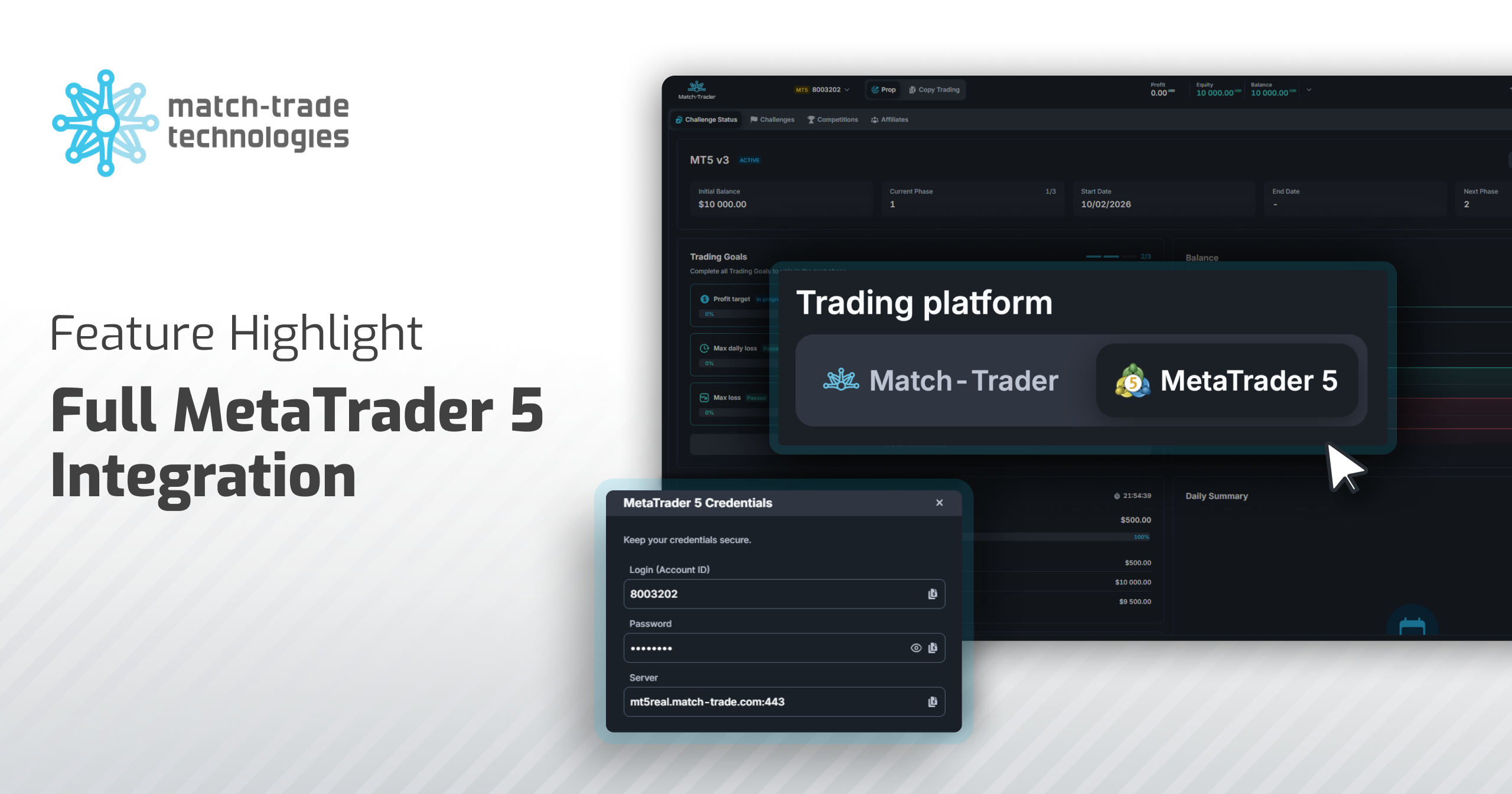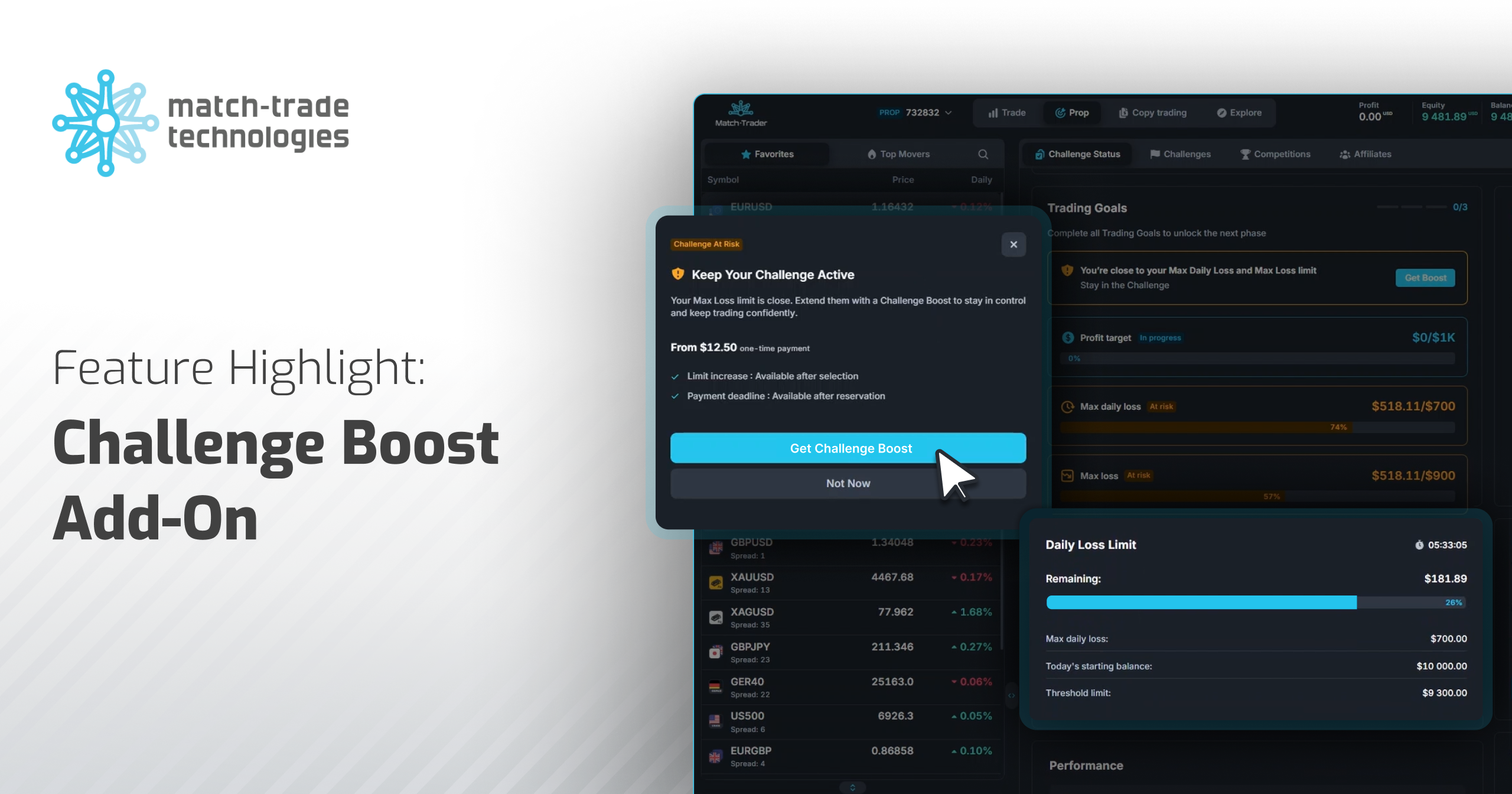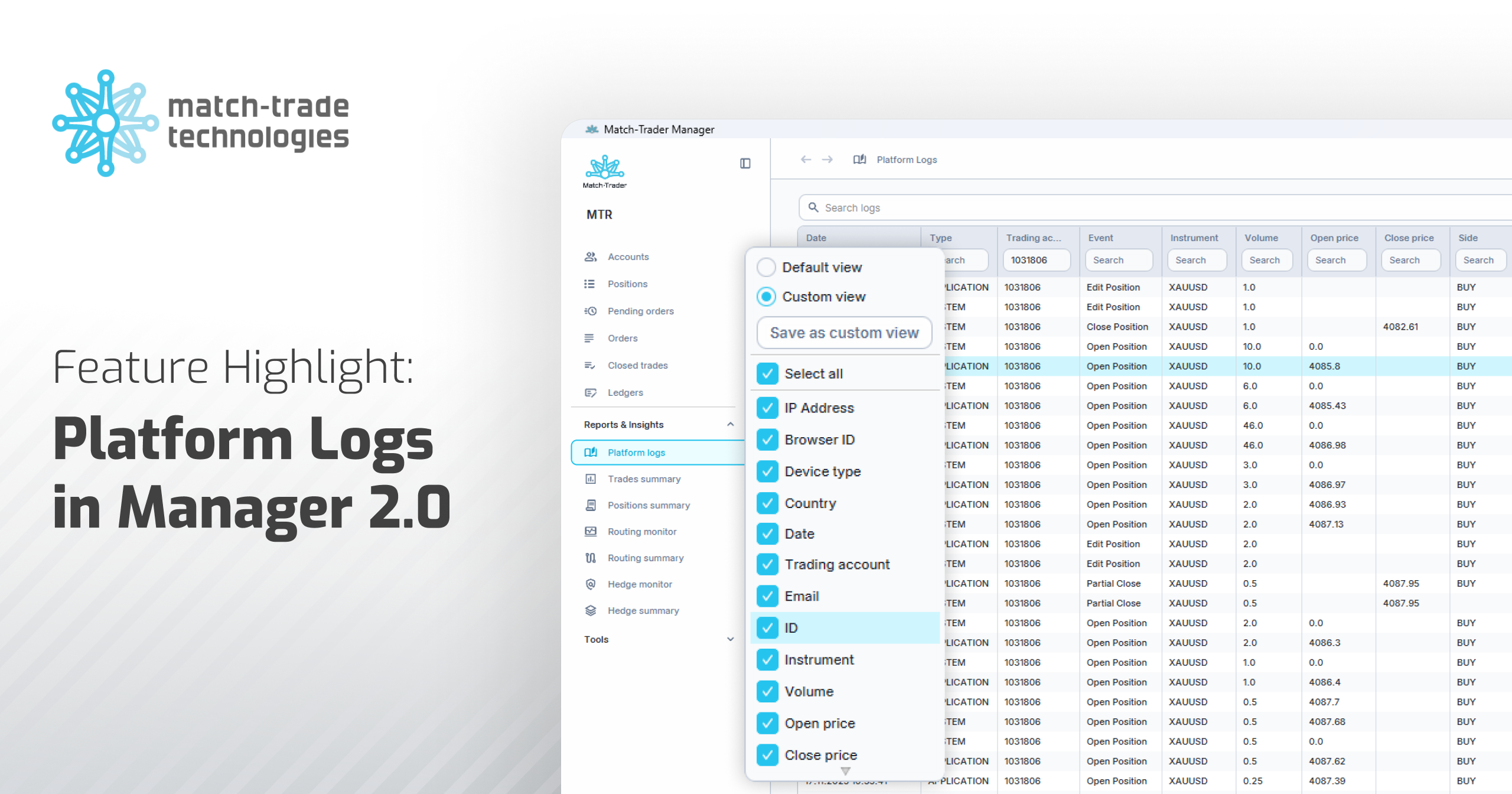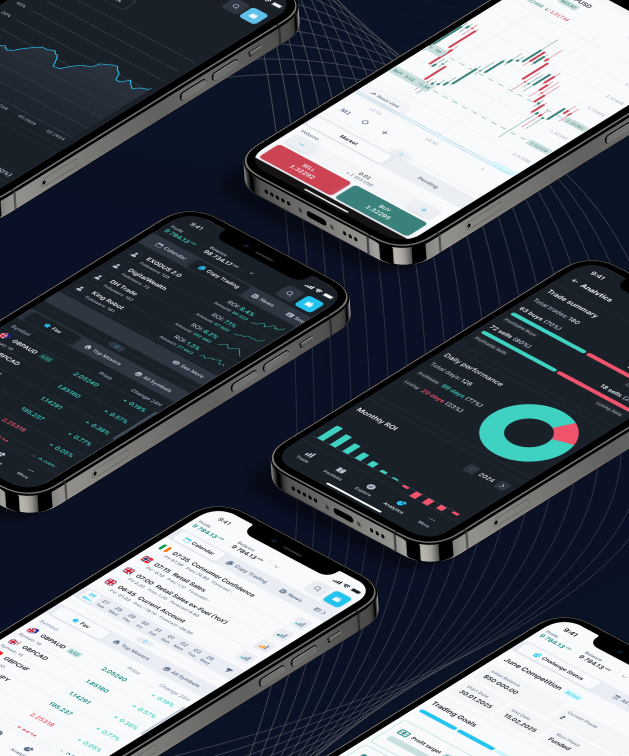Read the recent FInance Magnates interview, where our Match-Trade’s Expert speaks about A-Book and B-Book Brokers in the Forex and CFD industry and reveals what model dominates in the industry right now.
Q: What are A and B-Book models, what are the biggest challenges brokers using these models face and how Match-Trade is helping here?
A: A-Book system allows hedging whole or part of exposure with Liquidity providers. This model enables brokers to make profits from markups and commission only, but on the other hand, the exposure risk is very limited.
The B-Book model generates profits or losses made by traders, and its potential revenue in a short time might be much higher than on A-Book. But it also creates high risk from a business point of view, when it comes to paying the profits of traders. The biggest challenge for A and B-Book models for current brokerage businesses is the proportion of using each of them. Both models have their own cons and pros, it is hard to decide if any of them is better. The ideal situation is to use both of them simultaneously.
However, each broker should decide about risk management strategy based on their traders’ characteristics and trading history. The recommended situation is to keep “small” clients on B-Book and bigger ones, which could create exposure risk, to hedge on A-Book. Match-Trade Technologies has prepared a risk management system, which supplies brokers with tools in regards to hedging, supported with a sophisticated reporting module that can i.e. simulate B-Book performance if it would be done on A-Book.
Q: Looking at it from your perspective, what may be the percentage share of the A and B-Brokers in the FX/CFD industry? Which model dominates?
A: It would not be easy to get the exact proportions of which model is used more, since brokers are also changing that depending on the current market situation. But I think most part of the business is still taking place on B-Book, and only additional exposure is being kept on A-Book. Pure B-Book systems might be seen mostly by the big brokers since these brokers have more balanced and diversified books. But even those big players have their hedging options open all the time.
The middle size of entities uses mostly hybrid systems. They have already experienced teams that can smoothly manage the risk, but they want to also generate optimal income based on market making.
Start-ups are keener to start with a full A-Book model, as their books are not balanced due to not a sufficient number of clients, on the other hand, there are also risky companies that start their journey in brokerage business on full B-Book model from day one.
Q: In your opinion, in which direction FX/CFD brokerage industry will be going in the next 5 years? In other sectors of the financial industry, we see a tendency to make the trading experience easier (“gamification”) but also we see some acquisitions or IPO attempts. Is there a place for new CFD brokers or is it “game of the big brands” only now?
A: In the last few years, we observed market consolidation in regards to regulated markets, especially in Europe, and indeed for some markets, it became a playground for only big and strong brands. It is true that ESMA regulations have lowered profitability from the European clients but on the other hand, they actually helped those companies to clear the market from small or unregulated entities.
At the same time, other parts of the world are unregulated or lightly regulated, which gives huge potential for competition, not only for the big companies but also for small ones.
Since competition is taking place now not on the offer (spreads, commissions, number of instruments) but mostly on user experience. New trading platforms, fast onboarding options, friendly design or helpful news feed, and most important – awareness and marketing, became a battlefield of brokers worldwide.
Clearly, at the first look, the biggest players have the chance to take advantage of it as they have more capital and IT resources. However, it can also become an issue for them since any big change at this scale of business, requires more time and creates higher risk. That gives small brokers a good chance since the situation was not ignored by technology providers. They can create friendly platforms and an environment where most of the job is automated and is ready-made for running a full brokerage from day 1. Which could be done very hard by big brokers.
The market has never been more ready to create new brokers as it is Today. Also, the cryptocurrency market is helping them to manage payments, which makes them more flexible compared to the big and highly regulated brokers.





